AN EXTORTED PEACE
The current “peace negotiation” between the Santos government and the FARC is a straight-forward extortion scheme: The FARC is offering “peace” (or “protection”) in exchange for control of the government, through threats – and acts – of violence
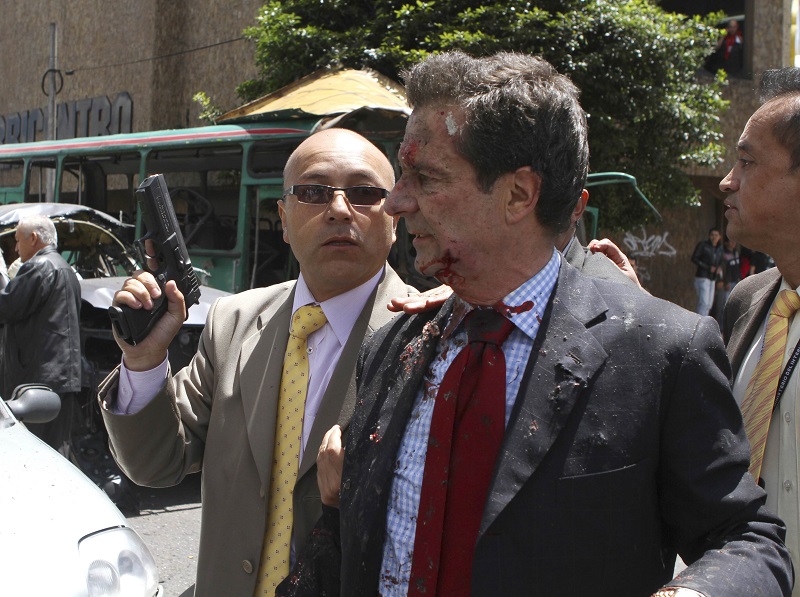
El CD no impulsó siquiera una verdadera investigación, ni propia, ni parlamentaria, ni judicial, hasta hoy, ante el sangriento atentado sufrido por un alto dirigente del CD, el ex ministro Fernando Londoño Hoyos
An extorted peace
The current “peace negotiation” between the Santos government and the FARC is a straight-forward extortion scheme: The FARC is offering “peace” (or “protection”) in exchange for control of the government, through threats – and acts – of violence

Por Lia Fowler*
October 6, 2015
In 2000, the image of Elvia Cortés Gil, a 55 year-old woman from rural Colombia, wearing a “necklace bomb” made headlines around the world. She had refused to pay “protection” money to FARC terrorists, so they forced the bomb around her neck, demanding $7,500 for its removal. Colombian police and army officers attempted for seven hours to disarm the bomb before it detonated, decapitating Mrs. Cortez and killing a police officer. This is one of thousands of instances of extortion, which has been the FARC’s bread and butter for decades.
They are still at it — on a grand scale. The current “peace negotiation” between the Santos government and the FARC is a straight-forward extortion scheme: The FARC is offering “peace” (or “protection”) in exchange for control of the government, through threats – and acts – of violence.
The FARC is clear in its demands. In a televised interview, FARC spokesman Rodrigo Granda said plainly: “The goal is the seizing of power through any means of warfare.” To get it, the crime syndicate has coerced the media, the opposition, and the Santos government itself through an intimidation campaign that has been brutally supported by violence.
Since the “negotiations” began, about three years ago, The FARC has killed or injured about 1,000 civilians and more than 2,000 members of the armed forces, according to statistics from the National Police and Military Forces. Earlier this year, the FARC executed a “Pistol Plan” – named after drug lord Pablo Escobar’s “Pistol Plan” in the 1980s — killing 22 uniformed officers and two civilians. Their goal was for Santos to call a bi-lateral cease-fire, and Santos obliged.
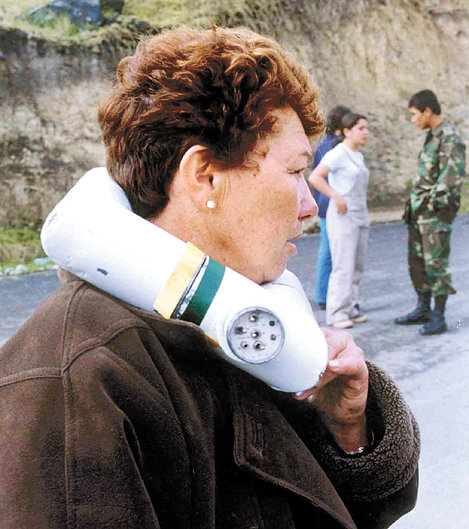
Journalists critical of the negotiations have been extorted to coerce their silence. Dario Acevedo Carmona, for example, columnist for the daily El Espectador, suspended his column after the FARC threatened his life through their website Anncol, which posted: “if we don’t ‘de-escalate’ him it will be hard to ‘acclimate’ the Colombian ‘family’ to peace.” (Their emphasis, not mine.) Journalists know the threats are real: in 2012, Fernando Londoño, who hosts a popular radio show, was the victim of a bombing that left two dead and injured 39 people.
Extorsion has also been useful in seizing government control at a local level. A recent example was the murder, in August of this year, of Genaro Garcia, the leader of an Afro-Colombian Community Council in Colombia’s Pacific region. The FARC demanded that Mr. Garcia relinquish his position on the Council. When he refused, he was murdered.
But the main target of this extortion scheme is former President Alvaro Uribe, Senator and leader of the opposition party “Centro Democratico.” Despite threats to his life, public pronouncements by the Attorney General Luis Eduardo Montealegre threatening to prosecute him, and an elaborate publicity campaign to tarnish his reputation, Uribe has yet to be silenced. On October 3, the FARC sent a message in true Tony Soprano style: On the same day that two hit-men attempted to assassinate Silvio Gomez Claro, a Centro Democratico candidate for mayor in the city of Pitalito, FARC leader “Timochenko” made this statement through El Espectador: “Uribe, don’t miss this opportunity for reconciliation.”
Recently, the Government and the FARC have begun to disagree as to how the FARC will pay for their crimes against humanity. In a not-so-subtle reminder of who the boss was, FARC leader Timochenko issued this warning in an interview with Telesur: “[at one time] one of our Commands informed us that they were perfectly-positioned to assassinate President Santos.” He then added that former FARC Commander Alfonso Cano only held off because it wouldn’t be valid while peace talks were ongoing.
The Santos Government is likely to give in to the latest FARC demands: complete absolution of their crimes, no decommissioning of their weapons or wealth, and political status. In essence, the FARC would become a political party led by terrorists, funded by drug proceeds and backed by an army of criminals. The U.S. government’s position on this dangerous scenario is troubling. Bernard Aronson, U.S. Envoy to the peace talks, said to CM& news: “…We would treat them like any other political party in the country.”
Elvia Cortez, Genaro Garcia, and Fernando Londono defied extortion demands because they refused to relinquish basic freedoms: individual rights, the autonomy of local communities, and freedom of speech and of the press. Uribe opposes the FARC’s extorted peace because he refuses to surrender the ideals of democracy and justice of a nation. The U.S. should stand with them.
@lia_fowler
*American Journalist and former FBI Special Agent


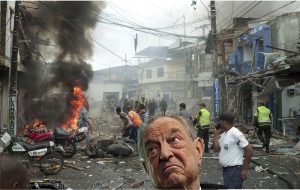
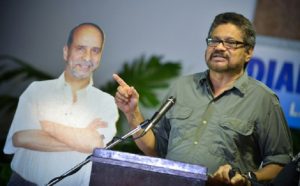
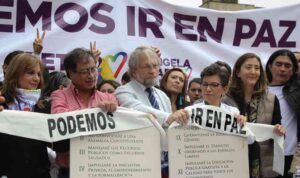
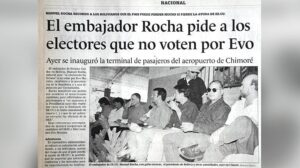


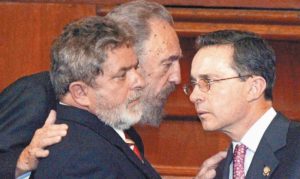
Comentarios